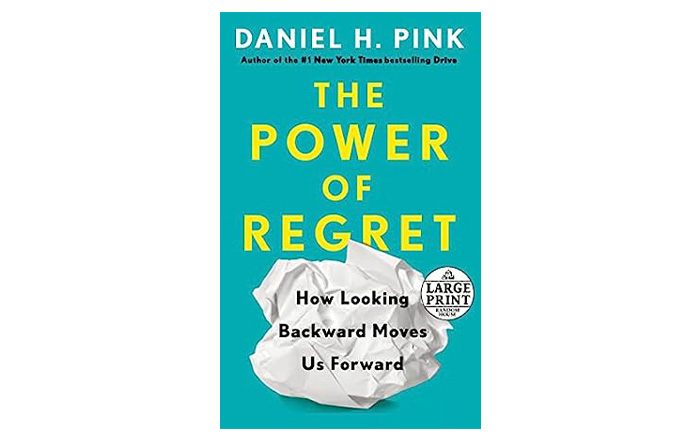Where to find this idea:
The Power of Regret: How Looking Backward Moves Us Forward by Daniel H. Pink
The mantra “no regrets” adorns human bodies in ink, graces coffee mugs in bold letters, and echoes through the lyrics of songs. People worldwide passionately deny this negative emotion’s existence. After all, why dwell on past actions or inactions that have shaped a present we might wish to change, especially when we bear the full weight of responsibility for it? Declaring “I have no regrets,” emphasizing lessons learned and maintaining positivity is undeniably more appealing. But let’s face it – a life devoid of regrets is an illusion. To live, to truly experience life, is to gather at least some regrets.
The moment you realize you would do things differently and recognize your suboptimal choices, you form regret. Sure, you can say that it was a lesson and it’s shaped you into the person you are today, but that won’t make regret disappear. That’s just the silver lining of regret.
Regrets are like a heads-up to learn and do better next time. If you don’t get that something went wrong, why would you bother changing it so you don’t do it again? Forgetting your best friend’s birthday and feeling regret because of it is a good thing that will probably motivate you to change behavior. Imagine forgetting the birthday and saying “I have no regrets, I would do the same thing again.”
Regrets are healthy and normal. Not only do they make us humans, they make us better humans. They improve our decision making, help us perform better and allow us to be kinder to each other.
We tend to celebrate positive emotions and avoid negative ones, but too much positivity can be negative. It can hold us back from growing and learning. We wouldn’t be here if we didn’t experience negative emotions. So acknowledge your regrets, learn from them and embrace the positive power of negative emotions.

